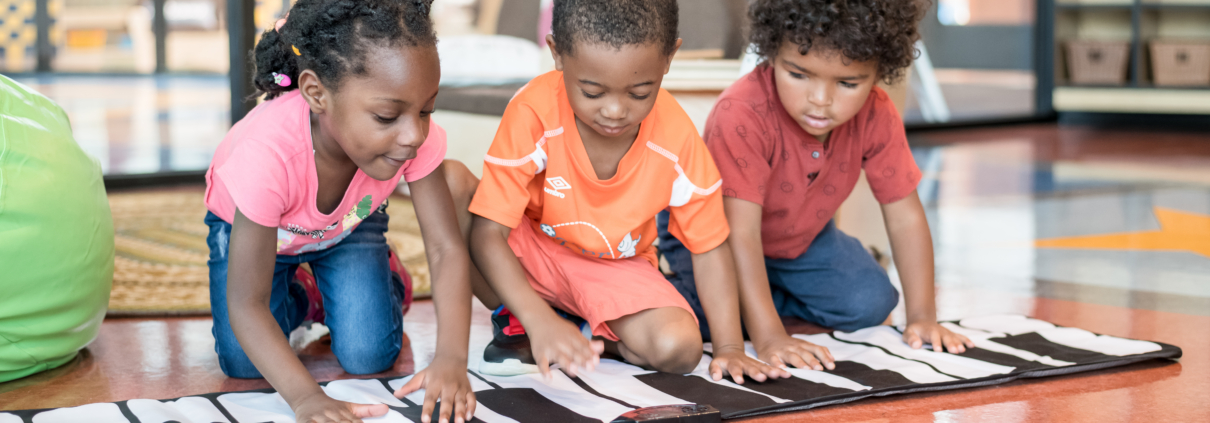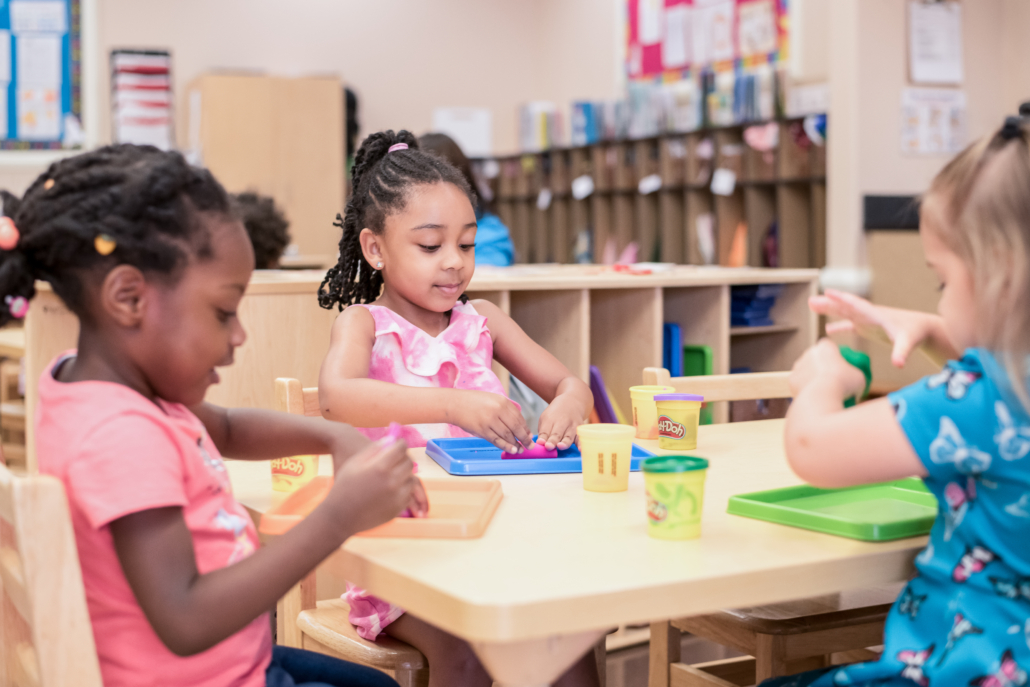5 Social Emotional Learning Activities to Try at Home with Your Preschooler
Understanding Social Emotional Learning at Home
Social-emotional learning (SEL) forms the foundation for how children develop emotional skills, build positive relationships, and navigate social interactions with confidence. For preschoolers, these social-emotional skills are just as crucial as academic skills—they’re the building blocks that help young children develop into emotionally intelligent, socially capable individuals.
At this precious age, your home becomes the first and most important classroom for developing these essential SEL skills. At age four, children start to use strategies to eliminate disturbing stimuli, and by age 10, children consistently use complex strategies for emotional self-regulation. Through daily routines, structured emotional learning activities, and loving guidance, you can help your child learn to recognize their own emotions, show empathy for others, and develop healthy ways to express themselves.
The beauty of incorporating social-emotional learning activities at home lies in their natural integration into your routine. You don’t need special equipment or extensive preparation—just your presence, patience, and willingness to engage with your child in meaningful ways. As you embark on this journey together, remember that every small moment presents an opportunity for emotional development, learning, and connection.

1. Emotion Recognition Through Play: Building Social Emotional Learning
Helping your child understand and express their own emotions is a cornerstone of emotional development and social-emotional skills. At Imagine, we believe that daily routines offer perfect opportunities to nurture emotional intelligence through social-emotional learning activities.
Creating an emotions chart can become a delightful emotional learning activity that you and your young children can work on together. Using colorful markers, draw different facial expressions showing different emotions like happy, sad, excited, and calm. Make it interactive by taking photos of your child making these expressions and adding them to the chart. Display it at their eye level, creating a visual tool for self-awareness throughout the day.
Mirror play offers a natural way to explore facial expressions and social awareness. Stand facing your child and take turns being the “leader,” making different emotional expressions for the other to copy. This engaging activity helps children connect physical expressions with emotional states while building social skills through imitation.
During story time, pause to discuss how characters might be feeling at different situations. Ask questions like “How do you think the bear feels when he can’t find his honey?” or “What makes you think the little girl is excited?” This builds emotional health while strengthening reading comprehension.
Incorporate brief “How do you feel?” check-ins throughout your social-emotional learning activities. These quick emotional temperature checks during breakfast, after playtime, or before bedtime help normalize talking about feelings and create opportunities for emotional skill development.
Learning Bonus
As children engage in these activities, they naturally expand their emotional vocabulary. Instead of just “happy” or “sad,” introduce words like “proud,” “frustrated,” or “surprised,” helping them develop more nuanced ways to express their emotional experiences.
2. Mindfulness and Social Emotional Learning Games
Teaching your preschooler to manage different emotions starts with simple, emotional learning activities that feel natural and fun. At Imagine Early Education and Childcare, we’ve seen how mindfulness exercises can transform challenging moments into opportunities for emotional development.
Bubble breathing is a delightful way to introduce self-awareness to young children. Have your child pretend they’re blowing giant bubbles, taking deep breaths in through their nose, and slowly releasing them through their mouth. This coping skill not only helps regulate emotions but also creates a peaceful moment you can share.
The “Stop and Think” turtle technique is another powerful tool for emotional skills development. When your child feels overwhelmed, encourage them to “turtle up” by wrapping their arms around themselves, taking three deep breaths, and naming their own emotions. This simple practice helps children pause before reacting and builds emotional vocabulary naturally.
Simple yoga poses can become magical moments of social awareness. Try the “brave mountain” pose (standing tall with feet planted firmly) or the “peaceful butterfly” (sitting with feet together, knees out). These poses help children feel grounded while developing body awareness and balance.
Create a dedicated safe space in your home where your child can retreat when feeling overwhelmed. Stock it with soft cushions, calming pictures, and perhaps a feelings chart. This special space teaches children to recognize when they need a moment to reset.
Learning Bonus
During daily routines, incorporate body awareness check-ins. Ask your child to notice how their tummy feels during breathing exercises or how their feet feel pressed against the ground during yoga. These simple observations help build lasting connections between physical sensations and emotional states.
3. Building Empathy and Social-Emotional Learning Awareness
One of the most powerful ways to nurture your preschooler’s emotional intelligence and social skills is through daily routines that foster empathy and social awareness. Role-playing provides engaging emotional learning activities for young children to explore different emotions and perspectives. Set up simple scenarios like “playing store” or “doctor’s office,” where your child can practice both helping roles and being helped. These social interactions teach valuable lessons about understanding others’ needs and feelings.
The kindness jar project offers a tangible way to celebrate positive relationships and compassionate behavior. Place a clear jar in a visible spot and add a colorful pom-pom each time you catch your child showing emotional skill—sharing toys with a sibling, comforting a friend, or helping to feed the family pet. When the jar fills up, celebrate their achievement with a special activity you can do together.
Create gentle social-emotional learning moments by posing “How would you feel if…” questions during daily activities. For instance, “How would you feel if someone took your favorite toy without asking?” or “How would you feel if a friend gave you a hug when you were sad?” These conversations help children develop emotional vocabulary and recognition skills.
Encourage your child to participate in age-appropriate helping tasks, like assisting with setting the table or sorting laundry by color. These simple activities demonstrate how their actions can positively impact others, reinforcing the connection between responsible decision-making and community well-being.
Learning Bonus
When children regularly engage in perspective-taking activities, they develop a stronger foundation of self-awareness and different emotions. This foundation of empathy supports stronger relationship skills, more effective problem-solving skills, and a deeper appreciation for diversity in their expanding social world.

4. Cooperative Play and Social Skills
Fostering social-emotional learning through cooperative play creates magical moments where your preschooler develops social skills and learns to navigate relationships. At home, you can create engaging social-emotional learning activities for your little one to practice these essential emotional skills in a safe space.
A simple game of “Pass the Block” becomes an enchanting lesson in self-awareness and social awareness. Sit in a circle with your child and family members, passing a colorful block while playing music. When the music stops, whoever holds the block gets to share different emotions about their day. This activity not only teaches patience and taking turns but also nurtures active listening and emotional development.
Transform sharing into an adventure by creating a “Sharing Station” in your home. Set up a special corner where your child can practice positive relationships with siblings or friends during social interactions. Make it exciting by introducing a “Sharing Superhero Cape” they can wear when they demonstrate generous social behavior. This positive reinforcement helps children associate sharing with joy rather than negative emotions.
For emotional learning and team problem-solving, try the “Building Together Challenge.” Provide your preschooler and a playmate with building blocks, but give each child only half the pieces needed to complete a simple structure. This naturally encourages relationship skills, communication, and critical thinking as they work together toward a common goal.
Learning Bonus
These social-emotional learning activities provide natural opportunities for children to practice essential emotional competencies. Encourage them to use phrases like “May I have a turn?” and “Would you like to play with this?” As they master these social-emotional skills, you’ll notice their confidence growing in group settings, setting a strong foundation for future healthy relationships and classroom success.
5. Social Emotional Learning Activities for Problem-Solving
Every day presents new opportunities for your child to develop essential emotional skills and self-awareness. At Imagine, we believe in empowering young children with the tools they need to navigate emotional challenges through social-emotional learning activities.
Create a safe space called a “Peace Corner” in your home, where your child can retreat when experiencing different emotions. Stock this special area with soft cushions, calming bottles, and simple breathing charts for mindfulness exercises. This dedicated space teaches children to recognize when they need a moment to reset and practice emotional development.
Turn everyday social interactions into learning opportunities by role-playing common scenarios using stuffed animals or puppets. When teddy bears can’t agree on sharing blocks or dolls have different situations about what game to play, guide your child through responsible decision-making. Ask open-ended questions like “What could teddy do next?” or “How could we help the dolls feel better?”
Develop a set of solution cards together by drawing or cutting out pictures that represent different emotional learning strategies—taking turns, using gentle hands, or asking for help. When challenges arise, review these cards together to help your child build social skills and identify positive solutions independently.
Teaching emotional regulation becomes interactive with simple tools like emotion thermometers or calm-down jars. These concrete visual aids help children understand and express their own emotions while learning coping skills to manage big emotions effectively.
Learning Bonus:
Through these social-emotional learning activities, children develop essential relationship skills they’ll use throughout their lives. They learn to consider options, predict outcomes, and choose positive solutions—all while building confidence in their ability to handle challenging situations independently.
Nurturing Social Emotional Learning Together
Supporting your preschooler’s social-emotional development and self awareness at home creates a strong foundation for lifelong learning and healthy relationships. By incorporating social-emotional learning activities into your daily routines, you’re helping your child develop crucial emotional skills like empathy, social awareness, and emotional regulation. Watch for signs of growth as your young child begins expressing different emotions more clearly, showing concern for others, and developing positive relationships. The journey of emotional development is unique for every child, and celebrating each small step builds their coping skills and resilience.
At Imagine Early Education and Childcare, we’re passionate about partnering with families to nurture these essential social-emotional skills. Ready to start this amazing journey of emotional learning with your child? Begin with any of these SEL activities today, and connect with our experienced educators to learn more about our holistic approach to building emotional intelligence. Schedule a visit to see how we create safe spaces where every child’s social and emotional health can flourish.




